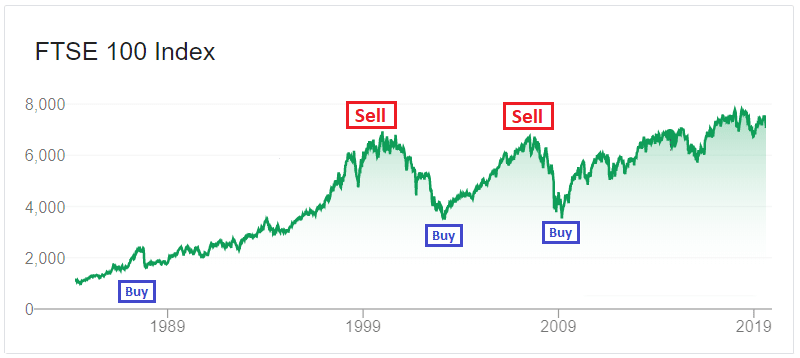If you’re looking for information on how to invest in the stock market in the UK, you’ve come to the right place. If you’re new to the industry, you’ll be happy to know that the stock market is easy to navigate, even for beginners. Here are some basic tips for investors in the UK.
FTSE 100
Table of Contents
For those looking to invest in the FTSE 100, the first step is to open an account with a trading platform or brokerage. After you’ve done this, you’ll need to fund your account with a bank transfer or debit card. Then you’ll need to choose an investment fund. Once you’ve chosen a fund, you’ll need to research companies and their stocks to determine the best options.
You’ll find that there are several options for investing in the FTSE 100, ranging from ETFs to individual shares. The best option will depend on what you’re trying to achieve. A fund will cover all of the FTSE 100 companies, so it’s a better option if you’re looking to diversify and invest passively.
You can also choose to invest in FTSE ETFs or index funds, which track the performance of the FTSE 100. There are a variety of ETFs and stocks available, and you can choose one that meets your investment objectives and budget. You can buy single stocks or ETFs from an investment fund or a stock broker.
FTSE 250
There are several ways to invest in FTSE 250 UK shares. If you are confident enough to invest a small amount of your income, you can buy individual shares and invest in FTSE 250 funds. You can also invest in individual FTSE 250 shares, although this is a more expensive option. You should make sure to update your portfolio on a regular basis, as constituents come and go from the FTSE 250 index.
The FTSE 250 index represents medium-sized companies in the UK. FTSE 250 stocks have consistently outperformed the FTSE 100 over the past decade. This is due to the fact that many of the FTSE 250 stocks are small and have a higher potential for growth. Most investment providers and trading platforms allow you to invest in FTSE 250 stocks. These companies also tend to pay dividends. These dividends mean that their company will continue to earn a profit in the future, which can make a big difference in market value.
If you want to invest in FTSE 250, you can get exposure through an IG share dealing account, exchange-traded funds (ETFs) and physical stocks. ETFs are an excellent way to invest in the FTSE 250 without buying individual shares. One of the most popular ETFs is the Vanguard FTSE 250 UCITS ETF, which tracks the movement of a basket of FTSE 250 companies.
FTSE 350
There are many ways to invest in the UK stock market. The FTSE 350 Index includes the largest companies on the Main Market, with an average market cap of PS6.7 billion. Another option is the FTSE Small Cap Index, which includes the 351st to 600th largest companies by market cap. The top companies in the FTSE 350 index include Home REIT, which has a PS1.3 billion market cap, and Procook, a PS42 million company.
Another way to invest in the FTSE 350 UK stock market is to invest in an index fund that tracks the performance of this index. An index fund invests in a variety of assets that are included in the FTSE 350. The FTSE 350 index includes the top 350 companies in the UK stock market and companies from all economic sectors.
You can also invest in a fund that tracks the FTSE 250 Index. This index is more representative of UK economic growth than the FTSE 100 index, since it includes both domestic and international companies. This index also includes a significant number of investment trusts, which are investment vehicles that issue shares on the London Stock Exchange.
FTSE 400
In the UK stock market, the FTSE index is considered a bellwether for the entire market. It is used to determine the health of the UK economy. The index is reviewed each quarter and companies that do not meet the criteria are dropped from the index. FTSE 100 is the flagship index. The smaller FTSE Fledgling index is another option. FTSE Fledgling has returned more than 40% over the last five years, whereas the flagship index has returned just 19%.
The FTSE 100 and FTSE 400 indexes are relatively high-risk investments, but their returns are generally higher than those of other UK stock markets. FTSE 100 stocks offer decent yearly returns, but past performance is not necessarily a reliable indicator of future performance. Trading on the FTSE 100 tends to involve CFDs or spread betting, which is derivative trading in which investors bet on a certain stock’s value.
One common strategy is to buy an ETF, which is an exchange-traded fund that mimics the performance of the FTSE 100 index. This investment strategy is a good option if you do not have a large amount of money to invest in individual shares. However, you should remember that ETFs have higher management fees than regular shares. However, the risk of losing money on ETFs is lower than in other types of stocks.

